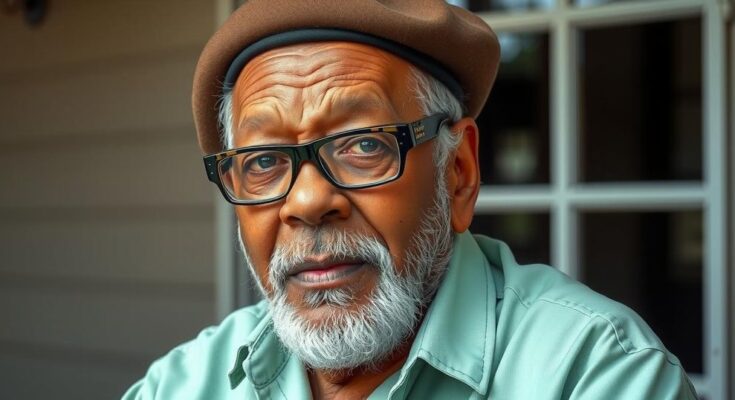Desi Bouterse, former Surinamese dictator and president, died at 79. He led a military coup in 1980, served multiple terms in power, and faced severe legal issues for human rights violations and drug trafficking. Despite being a fugitive, he retained popular support until his death from illness, prompting mixed reactions regarding his legacy.
Desi Bouterse, the former dictator and later democratically elected president of Suriname, passed away at the age of 79, according to government reports. Bouterse, who died following a brief illness while eluding justice, was known for his controversial rise to power after the 1980 military coup. He governed Suriname in various capacities, facing global backlash and legal repercussions due to his involvement in political killings.
Bouterse’s political career began with the coup which he spearheaded as a sergeant major in the army. Although stepping down in 1987 amidst international pressure, he returned to power in another coup in 1990 and was elected president in 2010, holding office until 2020. Despite his notorious reputation, he retained a following among Suriname’s working class, many of whom appreciated his socio-economic policies.
Bouterse faced accusations of human rights violations, notably his conviction for the 1982 execution of 15 political prisoners. An arrest warrant was issued against him by Interpol in connection with drug trafficking charges resulting in his sentencing to 11 years in absentia by the Netherlands. His son was also implicated in drug trafficking, highlighting a family history intertwined with criminal allegations.
Reports of Bouterse’s death surfaced late Tuesday night, prompting condolences from current President Chan Santokhi, who urged the population to remain calm. The National Democratic Party, Bouterse’s political faction, declared sorrow over the loss of their “spiritual father.” His body was quietly transported to his residence in Paramaribo, where family and supporters gathered to pay their respects.
Despite his fugitive status, Bouterse had suggested a possible return to political life, urging supporters to maintain patience until the next elections. His legacy remains complex, as he is remembered for both his dictatorial rule and his social initiatives. As stated by human rights lawyer Reed Brody, “It took 41 years, but the long arm of the law caught up to Bouterse before he died.”
Desi Bouterse’s tenure as leader of Suriname is marked by drastic political upheaval and controversial governance. Beginning his rule with a military coup in 1980, he solidified his power through subsequent coups and eventual elections. His political career is marred by serious accusations, including human rights abuses, drug trafficking, and evasion of justice, with multiple legal proceedings against him. Despite this, Bouterse remained influential among segments of the population, especially due to his domestic policies aimed at improving social welfare. His death has reignited discussions about his complex legacy as a leader who polarized public opinion.
In conclusion, Desi Bouterse’s death marks the end of a tumultuous chapter in Suriname’s history. While he was viewed as a dictator facing charges of severe human rights violations and drug trafficking, he also garnered significant support for his domestic initiatives. His political legacy continues to provoke differing opinions, illustrating the complexities of leadership in times of conflict and social change. As Reed Brody noted, the legal ramifications of his actions eventually caught up with him, framing his life as one of both influence and infamy within the country’s narrative.
Original Source: www.insidenova.com




